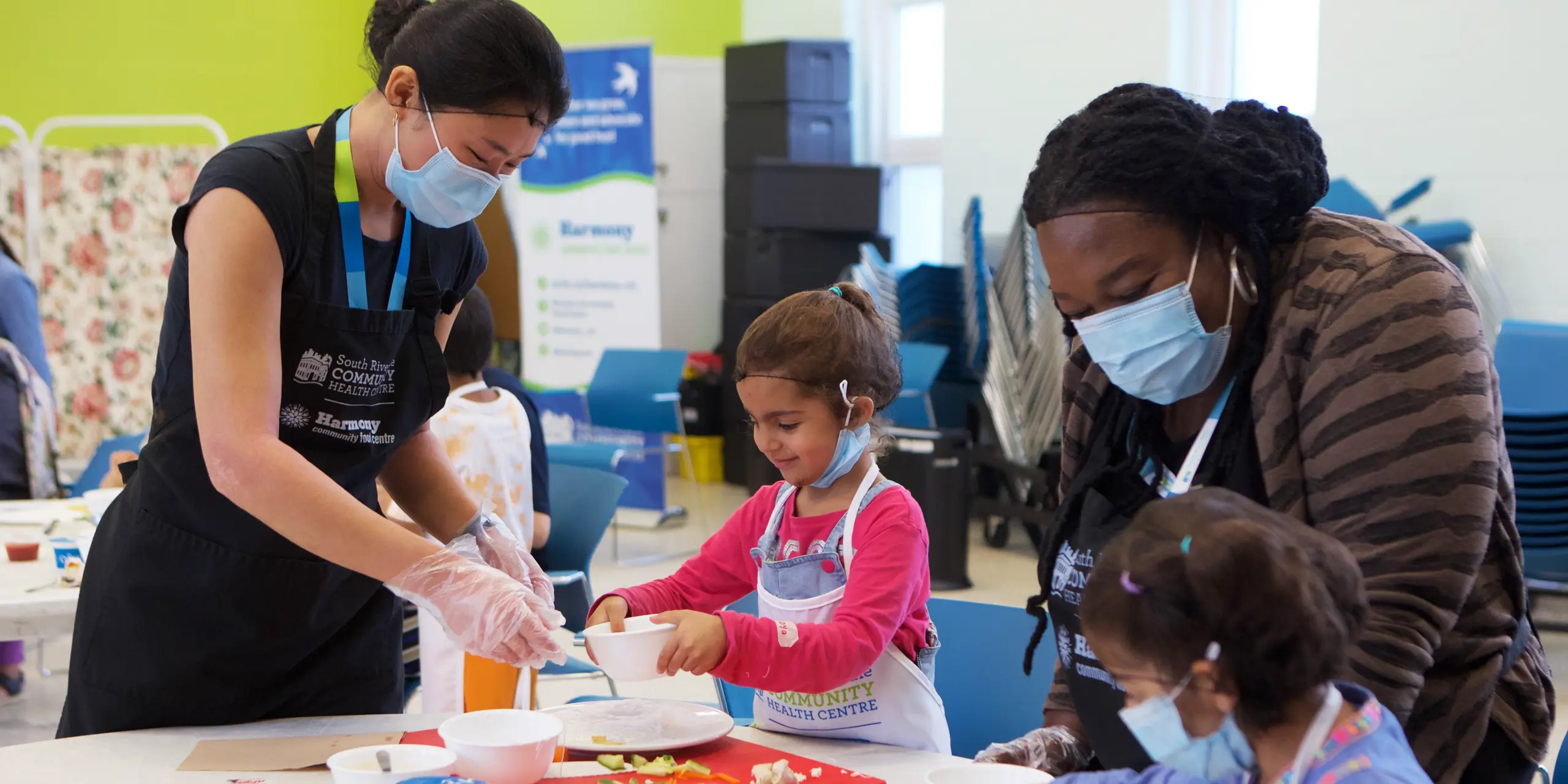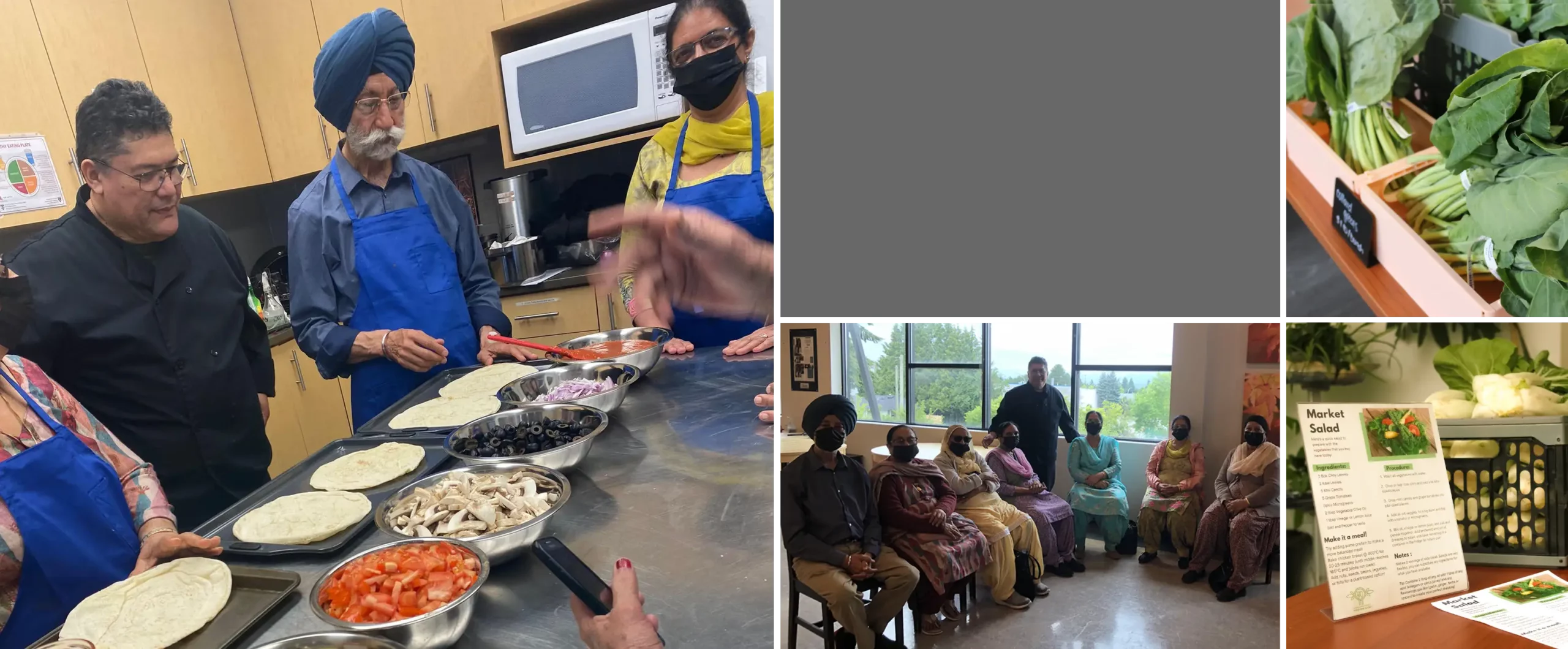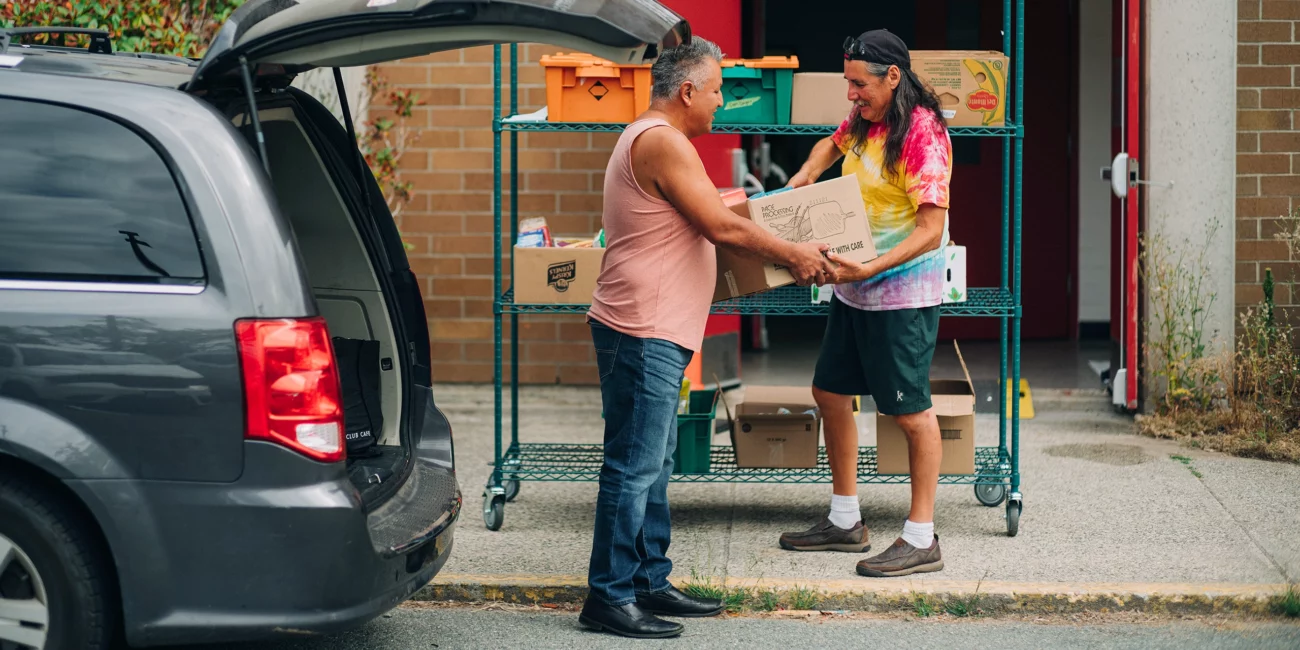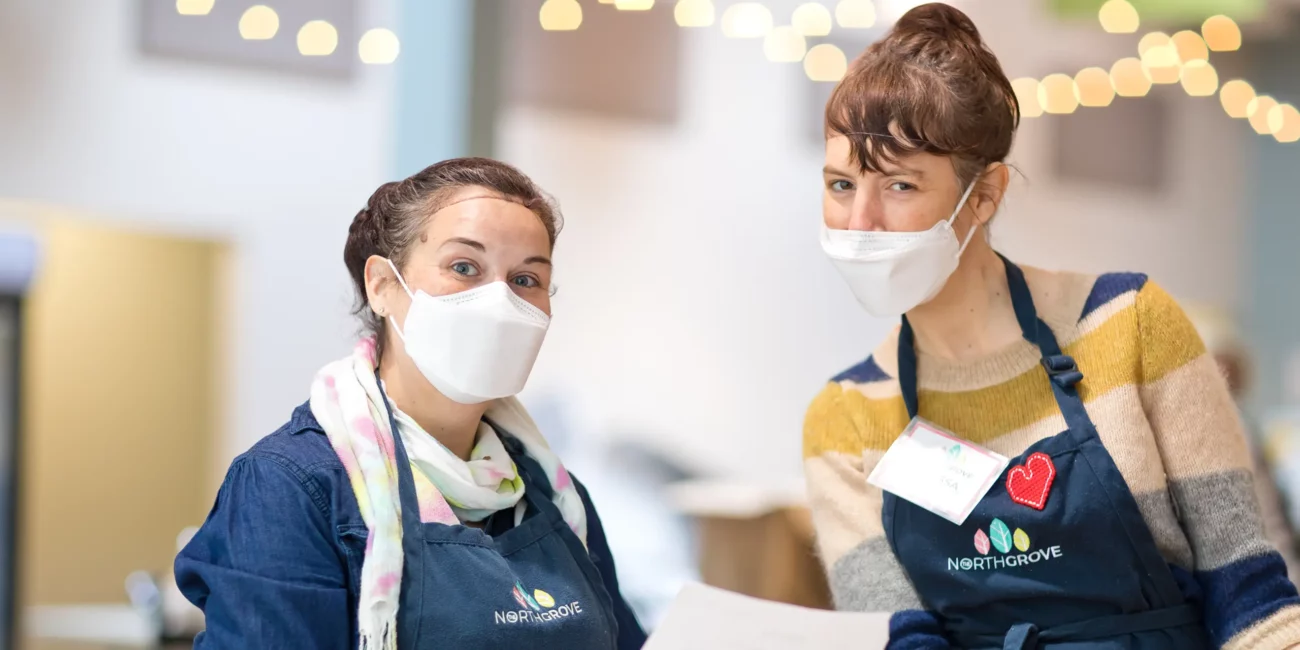A spirit of innovation

“FoodFit is all about making healthier choices in whatever context you’re in. But the intangible magic—the reason it’s so successful—is the sense of belonging it creates,” explains Syma Habib, who leads the program.
It’s an idea that’s top of mind for Syma as she reimagines the program’s curriculum and builds a new online platform for facilitators at Community Food Centres and Good Food Organizations across the country.
“As we evolve, we’re moving away from thinking health and community are separate. Instead, we’re weaving it together,” she says.
“FoodFit is all about making healthier choices in whatever context you’re in. But the intangible magic—the reason it’s so successful—is the sense of belonging it creates.”
Take, for instance, a recent session for elderly Punjabi women in Surrey, B.C. The plan was for the women to cook and do yoga via Zoom. But for the isolated seniors, the barriers were huge.
“I’m also Punjabi and in my culture, all the aunties like to spend time together,” Syma says. “That’s really hard to do virtually.”
Then the facilitator in Surrey had a brainwave: open up the online “room” for chatting and sharing news before and after the official session. This simple idea ended up working wonders, fostering connection and encouraging ongoing participation.
Meeting people where they’re at has always been at the heart of CFCC’s work. “As we listen and ask questions, talk to our experts on the ground, we’re deepening into what we do best,” Syma says. “What we know is wherever they’re at, people deserve to feel autonomy and competence—to feel in their hearts, they’ve got this.”
CFCC tests and invests in new approaches to health and wellness that focus on access to healthy food and opportunities to build skills in a supportive environment.
- FoodFit brings people living on low incomes together to move their bodies, make friends, learn about cooking good food in a fun, hands-on way, while setting achievable goals to improve health and wellbeing.
- Market Greens promotes food-based healthcare by providing access to fresh and nutritious fruits and vegetables through affordable markets and produce prescriptions.
- Mind Your Food promotes positive mental health in young people living in Indigenous, newcomer, and low-income communities by supporting youth to build nutrition knowledge, food skills, cultural pride, and community.
Share this story

“FoodFit is all about making healthier choices in whatever context you’re in. But the intangible magic—the reason it’s so successful—is the belonging piece,” explains Syma Habib, FoodFit Special Project Manager.
It’s an idea that’s top of mind for Syma as she reimagines the 10-year-old project’s curriculum and builds a new online platform for facilitators of the health and wellness program.
“As we evolve, we’re moving away from thinking health and community are separate. Instead, we’re weaving it together,” she says.
Take, for instance, a recent session for elderly Punjabi women in Surrey, B.C. The plan was for the women to cook and do yoga via Zoom. But for the isolated seniors, the barriers were huge.
“I’m also Punjabi and in my culture, all the aunties like to spend time together,” Syma says. “That’s really hard to do virtually.”
Then the facilitator in Surrey had a brainwave: open up the online “room” for chatting and sharing news before and after the official session. This simple idea ended up working wonders, fostering connection and encouraging ongoing participation.
Meeting people where they’re at has always been at the heart of CFCC’s health promotion programs. “As we listen and ask questions, talk to our experts on the ground, we’re deepening into what we do best,” Syma says. “What we know is wherever they’re at, people deserve to feel autonomy and competence—to feel in their hearts, they’ve got this.”
During the pandemic, The Local closed to in-person meals, but Susan was one of hundreds of community members who received hot food delivered by volunteers three times a week. She missed her friends, but these healthy meals, dropped off at her door, were a lifesaver after a 2020 stroke left her in hospital and rehab for months, then unable to drive or use her stove afterward. Sometimes the volunteers would even help clear the snow from her walk. “They always had a kind word—they really went above and beyond,” says Susan.
Some of her old crowd have passed away, but she’s found new people to sit with during community meals. And she’s also accessing supports, like referrals for mental health services and a nurse practitioner who can test her blood sugar. “I feel so welcome there,” Susan says. “People are wonderful. They make me feel supported. I truly feel part of this place.”
CFCC tests and invests in new approaches to health and wellness that focus on access to healthy food and opportunities to build skills in a supportive environment.
FoodFit brings people living on low incomes together to move their bodies, make friends, learn about cooking good food in a fun, hands-on way, while setting achievable goals to improve health and wellbeing.
Market Greens promotes food-based healthcare by providing access to fresh and nutritious fruits and vegetables through affordable markets and produce prescriptions.
Mind Your Food promotes positive mental health in young people living in Indigenous, newcomer and low-income communities by supporting youth to build nutrition knowledge, food skills, cultural pride and community.
Share this story

